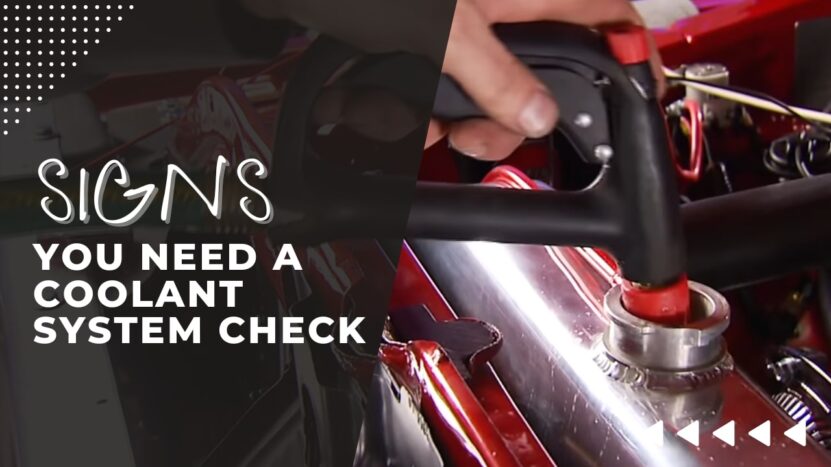Keeping your car in good condition is essential to its longevity and performance. Automotive vehicles have several components that require regular maintenance to ensure optimal performance, and the cooling system is an important part of this maintenance. Ignoring the signs that indicate it’s time for a coolant system checkup can lead to additional repair costs and may even damage your engine.
To make sure your car runs smoothly and doesn’t let you down when you need it most, stay alert for these tell-tale signs of a necessary coolant system check.
Signs You Need a Coolant System Check
Keeping your car’s coolant system in good working order is one of the most important things you can do to ensure a long life for your vehicle.
Let’s take a look at the signs that indicate it’s time to have your coolant system checked.
Leaking coolant
This is one of the most obvious signs that your car’s cooling system needs a check. Your vehicle may be leaking coolant from its radiator, hoses, gaskets, water pump, or thermostat. To identify the source of the leak, you should take your vehicle to an auto mechanic and have them inspect it with a dye test. This diagnostic approach makes it easier to trace the leak back to its origin.
If you have a slow leak and don’t see any fluid pooling under your car while it’s parked, you may still have enough of it in the system. But you should schedule a quick checkup with an auto mechanic as soon as possible — faulty coolant systems can cause engine damage if they are not addressed promptly.
To prevent overheating, overheating warning lights on your dashboard will alert you when there’s not enough coolant in the system. Pay attention to these lights and take immediate action when they go off so that you can avoid serious engine damage and costly repairs down the road. If needed, your mechanic may be able to top it up while they diagnose any other issues they’ve found during their inspection process.
Overheating engine
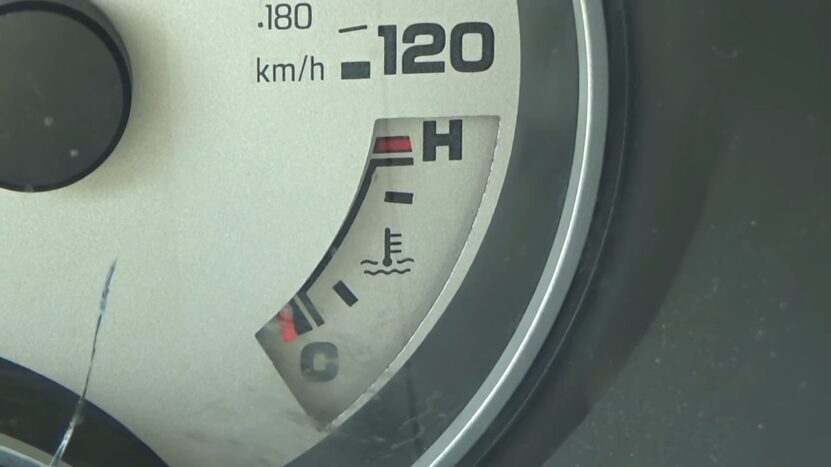
A tell-tale sign that drivers need to get their coolant system checked is an overheating engine. In most cases, a car’s cooling system prevents overheating. It works by helping your car maintain a safe operational temperature, even when it is subjected to heavy stress or temperatures. The system relies on specific components such as a fan, thermostat, radiator, and coolant.
If one or more of these components fail to work properly, then your vehicle may overheat and cause permanent damage. You may notice signs like steam coming from under the hood or your check engine light coming on due to a lack of coolant in the system. If you suspect an issue with your vehicle cooling system, take it to an automotive professional as soon as possible so they can check if any repairs need to be done.
Low coolant levels
One of the first signs that it may need attention is measurable low coolant levels. You can usually see this easily because your car’s coolant is brightly colored, so when you check the reservoir you can clearly see how much is left. Checking the level at least once a month is good practice and can be done in just a few minutes. Regularly checking the level of fluid will help ensure you don’t run into big surprises during an ill-timed breakdown or overheating episode.
The majority of vehicle models have a clearly marked plastic reservoir that typically identifies what kind of fluid the container holds and the appropriate fill line for it. When checking your car’s coolant levels, make sure to add only what’s needed; too much liquid sitting idle in the system could damage other parts over time and dramatically reduce engine performance.
It is also important to check other parts like seals, hoses, pipes, bolts, and caps to make sure they are securely connected and free from leaks or corrosion that could affect performance quality over time. If you notice any inconsistencies or irregularities in these components or an unusual odor coming from them, it’s best to contact an auto mechanic to safely diagnose and repair them before any bigger problems arise.
Poor engine performance
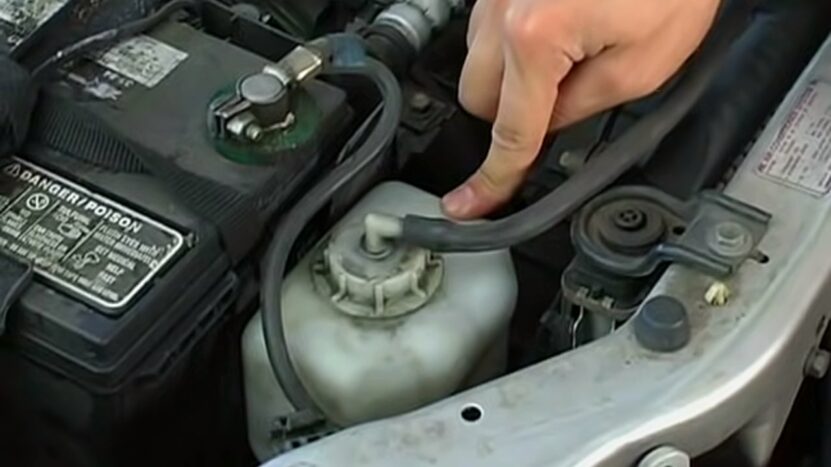
Poor engine performance is another sign that your coolant system needs to be checked. The cooling system is responsible for keeping the temperature of your engine at a level that allows it to function properly, and if you’re experiencing poor performance it could indicate that the coolant is not doing its job as efficiently as it should.
Poor acceleration, stalling, difficulty starting, or power loss are all potential signs of a coolant system in need of a check. If these symptoms persist, you’ll want to get your car checked out by a qualified mechanic who can determine whether or not this system requires maintenance or repair.
Unusual Engine Noises
If you hear strange sounds coming from your engine, it’s important to get it checked out by a professional as soon as possible. Some common engine noises that can indicate a coolant system issue include gurgling, hissing, or bubbling sounds. These sounds can be caused by air bubbles in the coolant system, which can lead to poor coolant flow and engine overheating. Another noise to listen for is a whining or grinding sound, which can indicate a malfunctioning water pump or a loose fan belt.
Ignoring unusual engine noises can lead to serious engine damage, so it’s important to address the issue promptly. In some cases, the problem may be as simple as a loose or damaged hose, which can be easily repaired. In other cases, more extensive repairs may be necessary to fix the issue and prevent further damage to the engine.
Benefits of a Coolant System Check
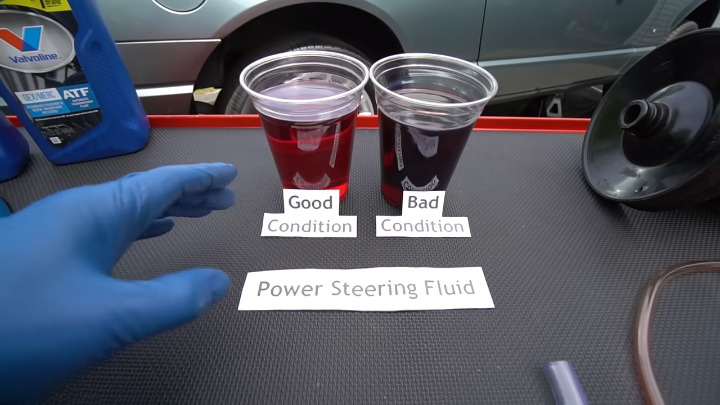
A coolant system check with maintenance can help your car run smoothly and increase its lifespan.
In this section, we will discuss the benefits of a coolant system check and how it will keep your car running smoothly in the long term.
Improved engine performance
Maintaining a regular routine of checkups for your car’s coolant system is essential for ensuring that it runs smoothly and performs at its best. A checkup looks for leaks or deposits, inspects the coolant level, checks the quality of the coolant, ensures that all connections are tight, and identifies anything else that may need to be repaired.
Many car owners ignore their car’s cooling system until it has obvious signs like an overheating engine or an ill-working heater. By investing in regular maintenance services and having a Coolant System Check done as soon as you notice any signs of an issue, you can ensure that your engine continues to perform at its best. Here are some long-term benefits of regularly having your car’s coolant system checked:
- Improved cooling performance: A Coolant System Check can be used to identify any minor hiccups or inefficiencies in your cooling system before they become major problems. This will prevent any damage from occurring and improve your engine’s overall cooling performance.
- Enhanced engine efficiency: A well-performing coolant system allows heat from the would-be wasted energy to be recycled to power other parts of your vehicle instead, resulting in enhanced engine efficiency and improved fuel economy.
- Improved performance overall: Regularly inspecting and maintaining your car’s coolant system will help ensure that all parts of its operation remain running with optimal efficiency. In turn, this leads to improved performance on treacherous terrain or extreme climates with high temperatures.
Reduced risk of engine damage
Having your vehicle’s coolant system checked regularly is the best way to ensure that your engine will stay running for years to come. A regular coolant system check helps minimize the risk of major mechanical failure, which can be both costly and dangerous.
The primary purpose of the coolant system is to keep your engine from overheating. The fluid that circulates through your car’s radiator helps regulate its temperature – which is why it’s essential that temperatures remain within an acceptable range while driving.
During a coolant system check, technicians will inspect the integrity of the vehicle’s cooling components such as hoses, clamps, and belts – looking for any signs of wear or corrosion which could compromise its ability to control engine temperature safely. They’ll also look at coolant levels and if they are low they’ll top them up with fresh antifreeze, if necessary.
Regular inspections and maintenance can help extend the life expectancy of your car’s components by ensuring your engine stays running at optimal temperatures and pressure all year round. Not only does this ensure your car continues to run efficiently, but it also means you won’t need to replace worn-out parts as often – saving you money in the long run!
Increased fuel efficiency
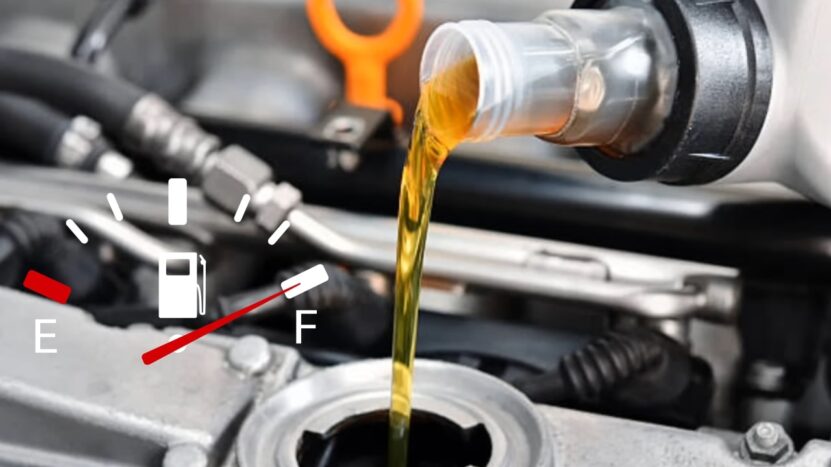
One of the potential benefits of getting a professional coolant system check is increased fuel efficiency as it helps to ensure that the car maintains a proper temperature level. Problems with a car’s cooling system, such as leaks and blown hoses, can cause the engine to overheat. This puts additional stress on the engine and requires it to use more fuel, resulting in significantly decreased gas mileage. Additionally, long-term overheating can damage the head gasket causing further efficiency losses and costly repairs.
To prevent any issues, having your coolant system checked annually is recommended by all leading auto manufacturers.
FAQs
How often should I have my coolant system checked?
It’s recommended to have a check done every 30,000 miles or every 2-3 years.
How can I check my coolant levels?
Refer to your owner’s manual for instructions on how to check these levels, or bring your vehicle to a professional for a system check.
How can I tell if my engine is overheating?
Watch for warning lights on the dashboard, or monitor the temperature gauge on the dashboard.
Can a coolant system check to prevent engine problems?
Yes, they can identify and fix issues before they cause damage to the engine.
Can rust or corrosion in the coolant system cause engine damage?
Yes, rust or corrosion can lead to engine problems if left unchecked.
Can I perform a coolant system check myself?
While it’s possible to check levels yourself, it’s recommended to have a professional perform a system check to ensure accuracy and thoroughness.
How long does a coolant system check typically take?
It can typically be done in about an hour.
What happens during a coolant system check?
A professional will check its levels, inspect the radiator and hoses for leaks or damage, test the thermostat, and ensure the entire system is functioning properly.
Is it safe to drive a vehicle with a coolant system issue?
No, driving a vehicle with it can cause serious engine damage and should be addressed immediately.
Conclusion
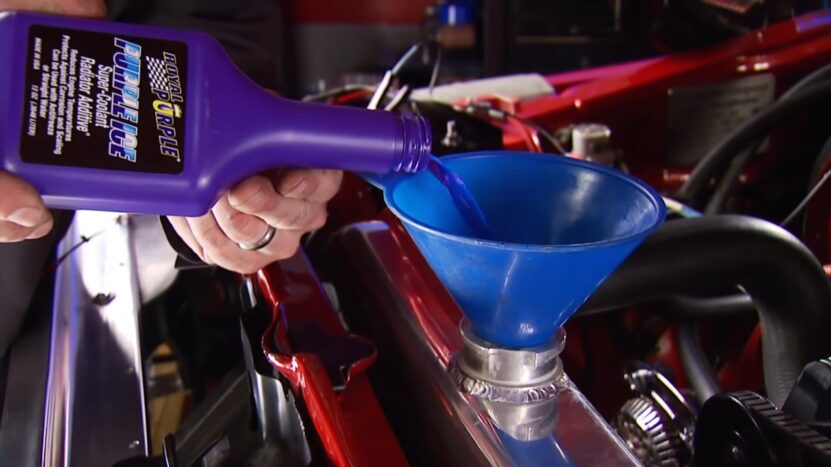
Overall, keeping your coolant system running smoothly should be a priority when it comes to taking care of your car. It may seem like a minor issue, but insufficient coolant can have disastrous consequences if left unchecked. Pay attention to the symptoms, keep an eye out for potential warning signs, and never ignore any strange smells that could indicate a problem with your vehicle’s coolant system.
A coolant system checkup will generally take about an hour and cost you around $50-100. However, if caught early and properly addressed, this small expense may save you from reduced performance or worse yet — costly repairs.

